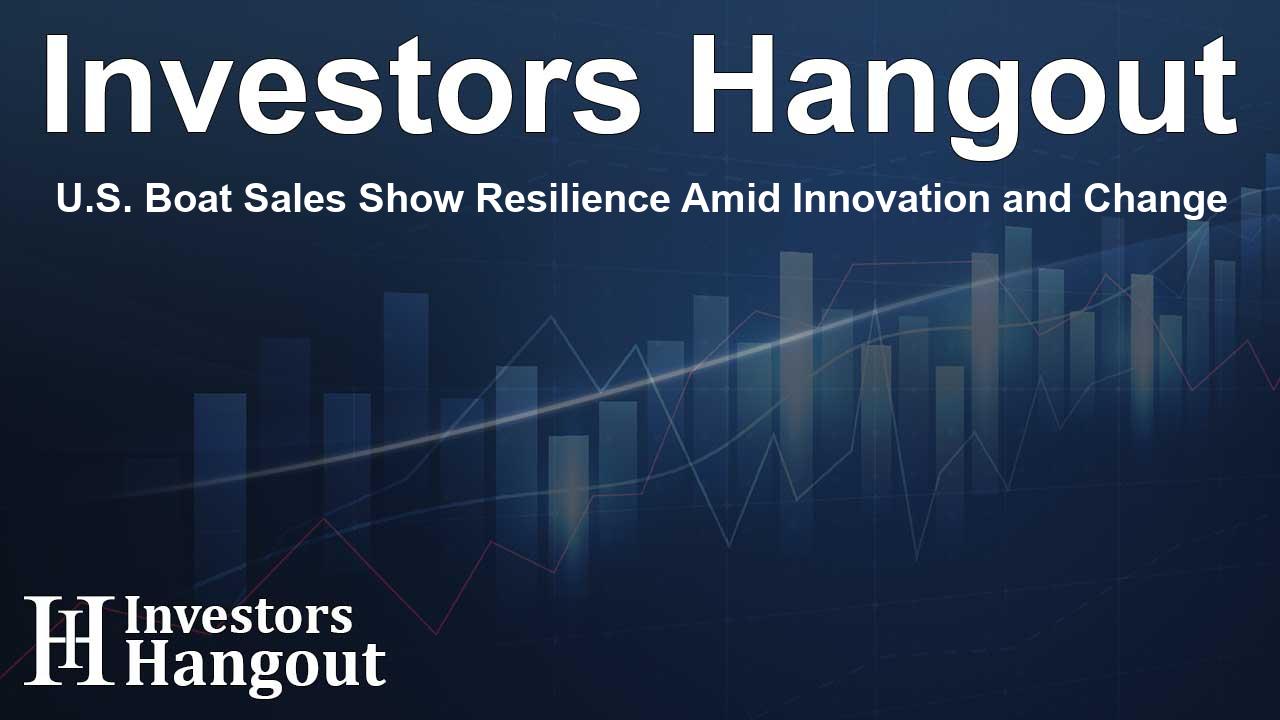U.S. Boat Sales Show Resilience Amid Innovation and Change

U.S. Boat Sales Show Resilience Amid Innovation and Change
As the recreational boating industry continues to evolve, innovation is emerging as a crucial driver for demand in the U.S. boat sales landscape. The National Marine Manufacturers Association (NMMA), which represents a significant portion of the market, has observed trends that highlight both challenges and opportunities for new boat sales, particularly as the winter boat show season begins.
Sales Trends and Economic Context
Recent statistics indicate that total new powerboat retail sales in the U.S. have decreased, with estimates suggesting a decline of about 9% to 12%. This translates to approximately 230,000 to 240,000 units sold. While this drop reflects a normalization phase following unprecedented demand during the pandemic, it also highlights ongoing challenges such as persistent inflation and interest rate hikes.
Looking Ahead: Growth Forecasts for 2025
Despite the current decline, NMMA anticipates a turnaround in sales by 2025, fueled by innovative product offerings and favorable economic policies. The expectation of increased recreational boating demand aligns with the ongoing enthusiasm among Americans for outdoor and water-based activities. As boaters continue to seek meaningful experiences, it is projected that spending on boating will rise by 3% to 5% over previous years, potentially surpassing $55 billion.
Boating Categories in Focus
Within the diverse boating sector, certain categories have shown resilience. Freshwater fishing boats, an essential segment, are expected to maintain steady sales, with unit sales ranging around 51,000 to 54,000. Meanwhile, new personal watercraft and pontoon boats have seen fluctuations; however, their accessibility and affordability remain attractive to many consumers.
Innovation: The Heart of the Industry
The future of recreational boating is increasingly defined by innovation. Boat shows—the primary venues for manufacturers to showcase cutting-edge technologies—are expected to emphasize advancements that enhance boating accessibility. From automated docking systems utilizing advanced AI to diverse propulsion technologies that prioritize sustainability, the emphasis is on making boating easier and more enjoyable for a broader audience.
Frank Hugelmeyer, NMMA's president, highlighted the sector's focus on flexibility and technology to meet changing consumer preferences. This drive for innovation continues to position U.S. manufacturers at the forefront of the global recreational boating market.
Recreational Boating as an Economic Indicator
Recreational boat sales serve as a barometer for the overall economy, reflecting the disposable income and confidence of many Americans—61% of boat buyers report household incomes below $100,000. As economic conditions stabilize, including strong consumer confidence and access to credit, the outlook for new boat sales remains positive.
Winter Boat Shows: A Vital Component of Sales
The upcoming boat shows in January represent a pivotal selling season, where consumers can explore and purchase the latest models and accessories. These events generate a significant portion of annual sales for the industry, highlighting the importance of face-to-face engagement in the boating community. Events like the Discover Boating Miami International Boat Show are expected to draw immense crowds, showcasing the vibrancy of the boating market.
Boating Expenditures and Consumer Spending
Here's a noteworthy statistic: boating and fishing are integral to the $1.2 trillion outdoor recreation economy, contributing significantly to the nation’s GDP. With approximately 85 million Americans participating in recreational boating annually, the industry's impact on employment and businesses is substantial.
About NMMA
The National Marine Manufacturers Association stands as the leading trade organization in the North American recreational boating sector. Representing about 85% of the industry, NMMA is central to advocating for the interests of its member companies while fostering innovation and sustainability in marine practices.
Frequently Asked Questions
What is driving the current trend in U.S. boat sales?
Innovation in product offerings and changing consumer preferences, alongside economic factors, are key drivers of the current trend.
How do boat shows impact sales?
Boat shows are crucial for consumer engagement, often generating up to 60% of annual sales for the industry.
What role does economic confidence play in boat sales?
Higher consumer confidence and disposable income levels positively influence recreational boat sales, reflecting broader economic health.
What are the expected boating expenditure trends for 2025?
Boating expenditures are anticipated to grow by 3% to 5% compared to previous years, potentially exceeding $55 billion.
How does NMMA support the boating industry?
NMMA advocates for its members, fosters innovation, and enhances market access while promoting sustainable practices in the boating community.
About Investors Hangout
Investors Hangout is a leading online stock forum for financial discussion and learning, offering a wide range of free tools and resources. It draws in traders of all levels, who exchange market knowledge, investigate trading tactics, and keep an eye on industry developments in real time. Featuring financial articles, stock message boards, quotes, charts, company profiles, and live news updates. Through cooperative learning and a wealth of informational resources, it helps users from novices creating their first portfolios to experts honing their techniques. Join Investors Hangout today: https://investorshangout.com/
Disclaimer: The content of this article is solely for general informational purposes only; it does not represent legal, financial, or investment advice. Investors Hangout does not offer financial advice; the author is not a licensed financial advisor. Consult a qualified advisor before making any financial or investment decisions based on this article. The author's interpretation of publicly available data shapes the opinions presented here; as a result, they should not be taken as advice to purchase, sell, or hold any securities mentioned or any other investments. The author does not guarantee the accuracy, completeness, or timeliness of any material, providing it "as is." Information and market conditions may change; past performance is not indicative of future outcomes. If any of the material offered here is inaccurate, please contact us for corrections.